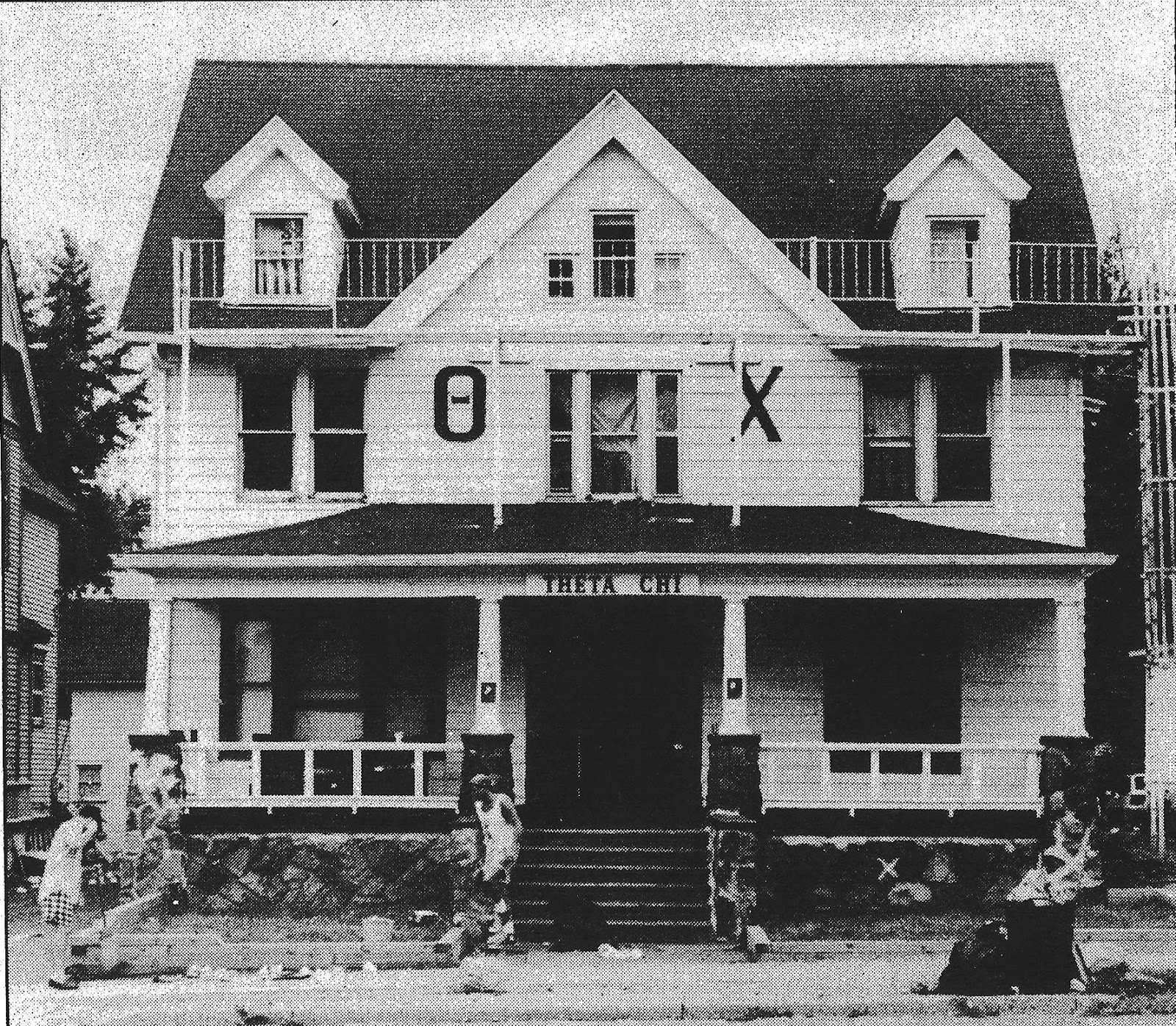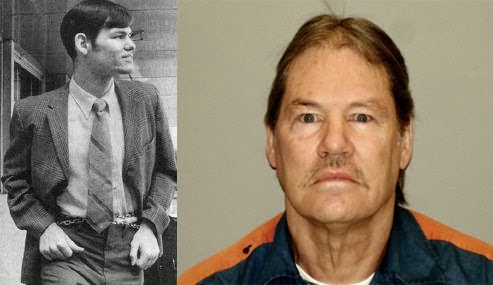I can understand that John Norman Collins' brother and sister want to distance themselves from the actions of their younger brother to protect their families. Of these murders, they knew nothing. But they could shed light on John's childhood and help us better understand why these terrible things happened.
Their mother Loretta Marjorie Collins was the unchallenged spokesperson for John during his arrest and trial for the murder of Karen Sue Beineman in 1970. Since Mrs. Collins' death in 1983, neither brother nor sister has commented publicly about their brother. So be it. They have lived with that decision for forty-five years.
But then, there are others who have valuable knowledge about John Collins who are not as closely bound as family. A wall of silence still exists among many of Collins' Theta Chi fraternity brothers. I find it difficult to understand why, after he was kicked out of their frat house for the suspected theft of $40 from their social fund, that they still shield him. There also had been a rash of petty thefts in the W. Cross St frat house while Collins lived there.
 |
| Eastern Michigan University Theta Chi fraternity members clean up the day after the annual welcome back party attended by more than 600 people. |
And after John Collins moved out of the Theta Chi house, one of his former senior fraternity brothers got his 650cc Triumph motorcycle stolen. Collins kept it under wraps until the bike's owner had graduated and moved back to Benton Harbor on the west side of the state safely out of Ypsilanti. This was the same motorcycle that Karen Sue Beineman was last seen driving away on with Collins at the controls, before her body was discovered three days later at the bottom of a shallow gully.
My researcher Ryan M. Place and I were able to obtain the names and contact information for fifteen of Collins' former Theta Chi Brothers, requesting any information about Collins, either positive or negative, that we could get. We emailed everyone and in some cases made followup phone calls. Of the fifteen Theta Chi we contacted, only three responded. Two agreed to speak with us on the phone, while another met with us in person.
The first was extremely nervous over the phone for fear that his Brothers would discover that he had broken the fraternity Code of Silence. One valuable piece of information we learned from him was the name of the third man in the red and black car that picked up Joan Schell in 1968. Her nude body was found a week later in the outskirts of Ann Arbor shoved under some roadside shrubs.
The next Theta Chi to respond to our entreaties has been acting as John Norman Collins' legal adviser and spokesperson for many years. This meeting in his law office was one of those occasions. I told him what I was hoping to accomplish by writing this book and shared a few matters with him that he agreed to pass on to Collins in Marquette Prison.
Ryan and I were both struck with how uncomfortable he was, even in his own office at his own desk. Collins' mouthpiece put forth his belief that John was innocent and that another frat brother committed the crimes. If that was the case, why wait forty-five years to break the news and spring his client from false imprisonment? There is no evidence to even remotely suggest that anyone but Collins murdered Karen Sue Beineman. Why such loyalty after forty-seven years?
The last person to contact me was a former Theta Chi Brother of John Collins, who also happened to be an Allen Park High School friend of mine. He gave me a full account of JNC's exile from Theta Chi but asked me not to reveal his name. Apparently, nobody wants to be marked lousy for ratting out a Brother.
From him, I learned about the theft of the motorcycle, an expensive bag of golf clubs, a stereo system, a color TV, and an expensive jeweled Theta Chi pin taken from another Theta Chi member. He said most of the Thetas were glad to see Collins leave their house, though a couple of their members left with Collins where they shared a boarding house at 619 Emmet St. around the corner and up the street, only one crooked block away from the Theta Chi house.
After pledges endure "secret" and usually humiliating hazing rituals, they take an oath of allegiance to one another which entitles them to all the rights, privileges, and protections of the Brotherhood. My question is this, when does that loyalty end? At what point does a person say, I draw the line at murder and mayhem? Theta Chi was conspicuous by its silence throughout the trial.
In a recent prison letter written to his Canadian cousin, Collins justifies the nobility of silence:
 |
| John Norman Collins in 1970 and in 2014. |
"Then when I pledged Theta Chi with (name withheld), we took an OATH to always come to the aid of a Brother. I took that Oath seriously and to Rat Out (name withheld) wasn't "IN THE CARDS" for me at that time... I kind of believed in the SYSTEM in that they wouldn't convict an innocent man. While a few of us still believe in the Brotherhood, a few do not. You are only as good as your WORD." (sic)
There are three former Theta Chi members who are people of interest to us. One of them hasn't spoken for fear of self-incrimination. He was able to tell the prosecution just enough at the Collins' trial to be granted immunity and keep himself out of jail, before slithering away into relative obscurity.
We are certain that Collins' legal adviser knows key information also, but he is protected by lawyer/client confidentiality. Then there is the "third man" who has been pulling back his social media after we made our initial contact with him. His name has come up in connection with the first two coed murders but somehow he escaped notice and was never interviewed as a person of interest by local police. We are still trying to figure out why.

I attended EMU during the murderous years of 1967-1970, and lived in Walton Hall and the Odyssey Apartments with my 3 roommates. In those years, girls were ordered to not accept motorcycle rides or walk alone on the campus after dark. I rec all one meeting at Pease Auditorium specifically addressing the murders of our classmates....one victim lived in the adjacent dormitory. I only recall Professor Allan Erhlich lecturing about the lack of safety on campus and urging coeds to never leave dorms alone. I did not know John Collins but many coeds rode on motorcycles during those years at EMU and some didn't live to regret it. I knew friends of the murdered victims...and friends of Collins. I grew up near Mt. Clemens, Michigan, about an hour from EMU. The lack of campus concern has always amazed me looking back to those years. I carried a steak knife in my pocket ! So much for safety.
ReplyDelete